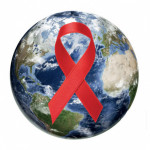A natural compound has been found to significantly reduce how often immune cells latently infected with HIV start replicating again. Researchers studied the effects of a compound known as Cortistatin A on latently infected immune cells drawn from nine HIV-positive individuals who were taking antiretrovirals (ARVs). Cortistatin A, which was isolated from a marine sponge known as Corticium simplex in the mid-2000s, has been shown to inhibit Tat, a viral protein that is instrumental in prompting the virus to replicate. In this study, the compound reduced the viral reactivation rate by an average of 92.3 percent.
This suggests that a functional cure strategy could involve slowing or stopping the virus’s ability to restart replication in latently infected cells, perhaps leading to long-term control of the virus without the need for daily ARV treatment.
Cure: Keep Cells Dormant






Comments
Comments